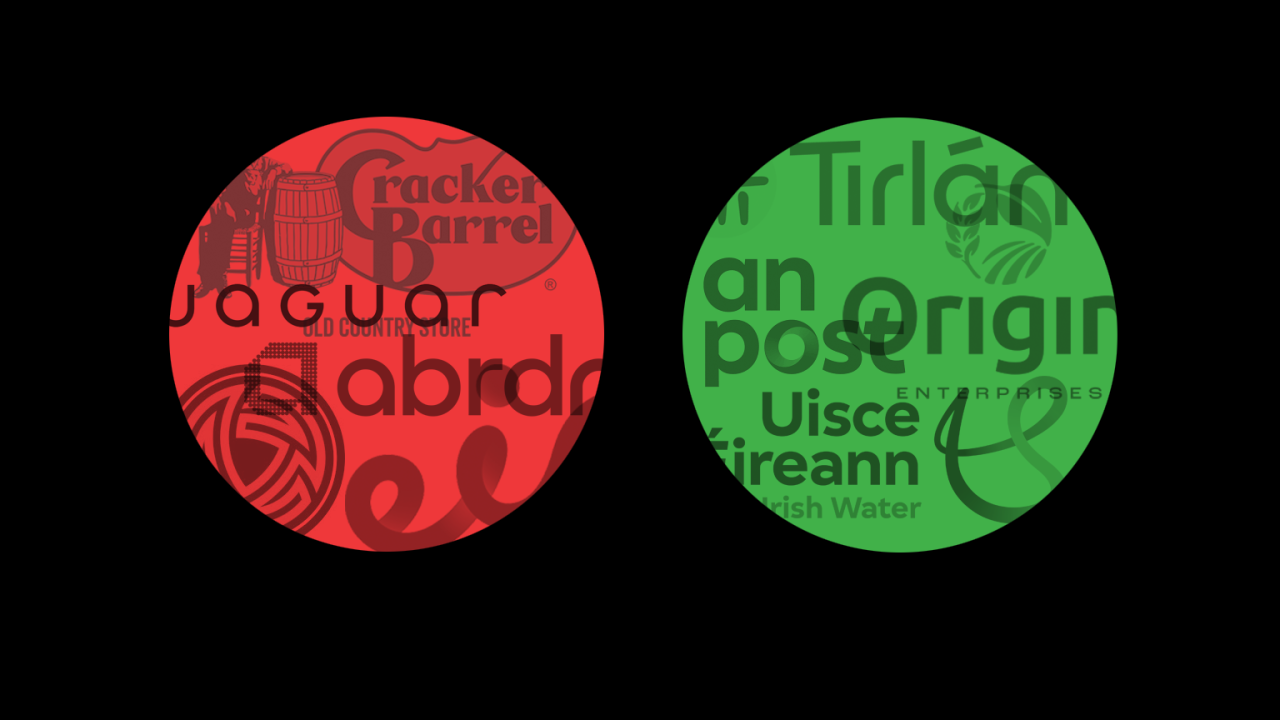Over the past month, articles have landed with a heavy hand on branding – quick to damn the practice of rebranding without elevating the reasons behind it or the measurable successes it can deliver.
One piece in particular highlighted a couple of Irish companies launching new identities without a compelling story or improvements in service to back them up. Fair critique, perhaps. But the broader narrative – that rebrands are doomed to fail – undermines both Irish businesses that invest in their brands and a creative industry that deserves to be given credit for helping businesses move forward.
The reality is simple: while branding can be controversial and its impact harder to measure than sales or margins, the evidence is clear. A strong brand attracts talent, commands a premium, and endures even in a recession. Every company is a brand, whether they choose to manage it or not. And every company must start somewhere – with a name, an image, and a story customers can believe in. Those early incarnations may not be perfect, but brands must evolve, refresh, and adapt in line with business change.
The Trouble with the Narrative
Critics love to point at the “flops” — Cracker Barrel, Jaguar, Abrdn, Eir, etc, an Irish Times article leaned on these familiar examples, citing research showing that negative stock market returns follow 40% of rebrands.
However, here’s the missing context: the same research by Dr. Yanhui Zhao found that, on average, rebrands resulted in a 2.46% increase in stock price. Digging deeper:
- In less competitive industries, corporate name changes delivered a 3.82% increase.
- In competitive industries, logo updates were rewarded with a 5.15% increase.
- When facing intense competition, investors expect firms to signal change through brand strategy – and punish those that don’t.
Branding isn’t about logos in isolation. It’s about signalling strategy, growth, and ambition. The negative press focuses on symbols; the real story is one of business progress and transformation.
The Stories We Forget
Closer to home, Ireland has no shortage of brand success stories – even if they don’t always get the spotlight:
Uisce Éireann: more than just a name change, this rebrand marked the transformation of a national utility and an essential step in rebuilding public trust.

Origin Enterprises: not a rebrand but a brand refresh, clarifying its story, simplifying a complex portfolio, and sharpening market focus. An 18% rise in share price over the past year is not down to the brand refresh, but the brand strategy has helped to explain their business model to investors.
An Post: repositioning a legacy postal service as a modern, customer-first business. Today, it ranks among the most reputable brands in the country, according to the Reputation Agency’s Ireland Index 2025.
And on the international stage, Wise: the rebrand of TransferWise, was a customer-centric approach to moving its brand forward, with success by introducing new products, expanding globally, and simplifying its brand. Wise has continued to grow and reach new markets.
Even so-called “flops” deserve a second look. Eir remains a successful, profitable business — can you imagine its future had it stayed as Eircom? Aer Lingus has consistently improved brand preference, guest experience, and commercial results.
When rebrands are done well – anchored in strategy, timed to real business change, and launched with substance – they don’t just survive scrutiny, they thrive under it.

More Than the Bottom Line
Financial performance is only one measure of success. A rebrand can:
- Give employees a shared purpose and pride.
- Attract and retain top talent.
- Signal to customers that you’re improving, innovating, and worth their trust.
- Streamline how a business manages its brand assets, saving time and cost across global teams.
- Keep a business looking alive, relevant, and cared-for.
- Stand out in an ever-competitive market.
Logos and names are emotional. We grow up with them, get used to them, and resist when they change. That discomfort makes for easy headlines. However, without investment in their brand, companies risk appearing tired, outdated, and irrelevant. And like many brave ideas — whether in branding, art, or music — they often cause friction before they are accepted.
Celebrating Success, Not Just Failure
It’s encouraging that branding is “on the radar” of media and public debate. But criticism that focuses only on failures does little to help the creative industries, which are adding value far beyond “logos” and depend on ambitious companies willing to be unique, distinctive and progressive.
The more useful conversation is not whether branding works, but how to do it right.
In defence of the rebrand: it’s time we stopped knocking the failures and started celebrating the successes.
